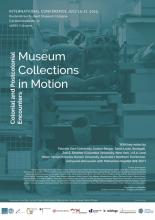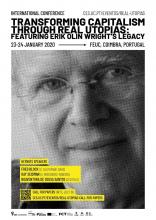CfP: 1° Encuentro Internacional de Investigadores en Estudios Afrolatinoamericanos
1er Encuentro Internacional de Investigadores en Estudios Afrolatinoamericanos
Cartagena de Indias, Colombia
27-29 de mayo de 2020
En el centenario del natalicio de Manuel Zapata Olivella (1920-2004)
PRIMERA CIRCULAR
II Congreso internacional de investigadorxs sobre anarquismo
Los días 11, 12 y 13 de julio tendrá lugar en la Facultad de Humanidades y Ciencias de la Educación el II Congreso Internacional de Investigadorxs sobre Anarquismo(s),
coorganizado por una comisión formada por docentes, estudiantes y egresadxs de la Universidad de la República (Uruguay), así como por investigadorxs independientes y
activistas y por el Cedinici (Centro de Documentación e Investigación de la Cultura de Izquierda en Argentina, Universidad Nacional San Martín - Argentina).
Child refugees from the Spanish Civil War: a scrapbook tells a story
The aerial bombardment of Spanish towns by German and Italian planes during the Spanish Civil War prompted the co-ordination of an unprecedented mass-evacuation of refugee children. 4,000 arrived in Britain in 1937. Deprived of support from the British government, the children were cared for in ‘colonies’ across the UK supported entirely by volunteers in the local community.
Inventario dei materiali che hanno attinenza con la donna e le questioni di genere nei fondi archivistici della Fondazione Pellegrini Canevascini
Riteniamo utile, in concomitanza con il secondo sciopero generale nazionale delle donne del 14 giugno 2019, raccogliere tutte le informazioni che possono guidare i/le interessati/e a muoversi fra i diversi fondi della FPC che contengono materiale sul tema.
La collocazione segnala il numero della scatola del fondo, quello della cartella al suo interno; eventualmente anche quello della camicia e, in casi eccezionali, il numero progressivo del documento nella camicia.
(See attachment)
CfP: North and South. Forms of Inequality within International Politics of Scientific Production
The debate around the North-South divide accumulates a significant amount of literature since the late 1960s. South is a concept addressing spatial representations of inequality, relevant for analyzing issues affecting peripheral societies, but not having much to say on issues relevant to societies labeled as ‘Northern’.
Museum Collections in Motion. Colonial and Postcolonial Encounters
Museum Collections in Motion
Colonial and Postcolonial Encounters
July 15-17, 2019
CfP: Transforming Capitalism through Real Utopias. Featuring Erik Olin Wright’s legacy
Transforming Capitalism through Real Utopias. Featuring Erik Olin Wright’s legacy
January 23 and 24, 2020
Faculty of Economics of the University of Coimbra >> CALL FOR PAPERS until July 30
Appel à candidatures pour le Prix Francis Blanchard 2019 sur l'histoire de l'Organisation internationale du travail.
A l'occasion de son dixième anniversaire, l'AFOIT (Association Française pour l'Organisation Internationale du Travail), a créé le prix Francis Blanchard. Elle veut ainsi honorer la mémoire de Francis Blanchard, ancien Directeur Général (1974-1989) du BIT (Bureau International du Travail) et l'un des membres fondateurs de l'AFOIT.
CfA: 10 contractuels post-doctorants - EHESS
L’EHESS recrute 10 contractuels post-doctorants, à compter du 1er octobre 2019 pour une durée d'un an, pour une rémunération brute mensuelle de 2365 €.
Les 10 postes porteront sur les thématiques suivantes :
1- L’environnement en Asie orientale et septentrionale
2- Droit et catégories coloniales
3- Le tournant numérique dans les mobilités et l’aménagement urbain
4- Penser avec le droit : philosophie et sciences sociales


